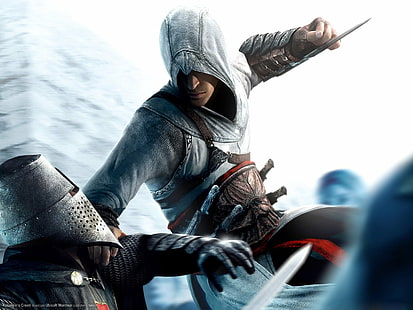
Lee Carsley was a bundle of contradictions in the aftermath of England’s limp 2-1 defeat to Greece on Thursday night, squirming under the spotlight of a position which is called “impossible” for plenty of reasons.
The Birmingham-born former Republic of Ireland international claimed that he was ‘hopeful’ of returning to the Under-21s before, a few seconds of garbled sentences later, describing the senior management role as “one of the best jobs in the world”.
About the only thing that spluttered out of Carsley which held up under any scrutiny was his view on England‘s shapeless attack. The Three Lions forced just one save from Odysseas Vlachodimos despite starting with all five of Anthony Gordon, Jude Bellingham, Phil Foden, Bukayo Saka and Cole Palmer. “I probably won’t try that again,” Carlsey conceded.
Here’s what he could attempt when England go up against Finland in Helsinki on Sunday.
The few occasions when England offered any whisper of threat against a Greek backline robbed of Liverpool‘s Kostas Tsimikas came from well-timed runs off the ball. The crippling flaw behind stuffing the attack with so many talented playmakers is that they all want the ball to feet.
Bellingham was the most willing, penetrative runner – perhaps a consequence of playing in such an advanced role for Real Madrid throughout a goal-laden debut campaign in Spain. The Birmingham City academy graduate burst behind Greece’s rearguard before teeing up Palmer for a golden chance which he skied over the bar while the game was still goalless. Bellingham made no mistake when latching onto a cutback from Ollie Watkins to equalise in the 87th minute.
The Aston Villa striker is the most obvious addition to provide some dynamism to England’s static attack. But if Harry Kane can overcome his injury concerns to start against Finland, then Carsley needs to inject some thrust into the flanks. England’s skipper is at his best in a quarter-back role but needs to be balanced by a pair of pacey wide receivers.
Without the injured Bukayo Saka, that directness may have to come from Chelsea’s Noni Madueke. Even if these probing runs are not always picked out, the threat of a Premier League forward hurtling towards goal will naturally push Finland’s backline deeper, teasing apart space in midfield which was so hard to come by against Greece.
A no-nonsense defensive stopper during his playing career, two decades of blunting attacks has seemingly converted Carsley into a high priest of attacking football. “I had 17, 18, 19 years as a player being defensive and just sitting in there and playing on the counter-attack,” the former Everton and Derby County midfielder told the BBC following the midweek defeat. “That is definitely not how I want to coach. Nothing changes in that respect.”
While this all-out attacking philosophy sounds aesthetically pleasing, playing without any defensive caution is only going to harm the frontline. No one is asking Tyler Durden to tweet about Fight Club. But playing a natural central midfielder alongside Declan Rice would help keep the ball penned into the final third and at least reduce the endless list of duties foisted upon the beleaguered Arsenal man.
Whether Rice’s partner is a scurrier in the form of Conor Gallagher, a schemer like Lille’s Angel Gomes or even the all-round excellence of Bellingham, anyone would be an improvement upon the swathes of unmanned green grass which constantly surrounded the 25-year-old in midweek.
Sometimes you need to slow down to speed up. The sight of England’s frontline haring around the final third in a feverish press against Greece was enough to briefly delay the volley of paper airplanes soaring towards the Wembley turf.
However, it soon became abundantly apparent that a morsel of composure in possession would allow Greece’s backline – which was marshalled by Arsenal’s discarded academy graduate Konstantinos Mavropanos – to bypass this aimless burst of energy. A holographic midfield offered no second wave of pressure and ensured that Greece had ample opportunity to charge into England’s defensive third at will.
Former Liverpool boss Jurgen Klopp once famously claimed: “No playmaker in the world can be as good as a good counterpressing.” If Carsley can fashion a more cohesive setup out of possession, that would not only take the pressure off his backline, but also keep the ball at the feet of his fleet of forwards.
Carsley trialed picking all three of Palmer, Foden and Bellingham ahead of Greece’s visit, describing it as “a nice problem to have”. However, the proud training ground manager didn’t find the “balance” he craved with Thursday’s lineup.
Palmer’s evening began with a wild mis-kick which proved to be an accurate forewarning of his performance as a defensive midfielder in name only. Foden barely saw enough of the ball to shank it. Leaving one – if not two – of the trio out to return to a more coherent structure would be an unpopular step which most of Carlsey’s predecessors would be afraid to take.
Tireless debates over England selections are nothing new. Paul Scholes’ role on the left was lamented every summer while the exclusion of Paul Gascoigne from the 1998 World Cup squad sparked national outrage. No one needs to be reminded of the years lost to the Steven Gerrard-Frank Lampard debate.
Even back in 1966, Jimmy Greaves’ omission from England’s World Cup final lineup caused consternation in the press, stands and the dressing room. But the prolific Tottenham Hotspur forward didn’t fit the system which Sir Alf Ramsey had devised and so was sacrificed. It may not be a coincidence that one of the few England men’s managers who did not bow down to the cult of personality is the only one to actually win anything.





